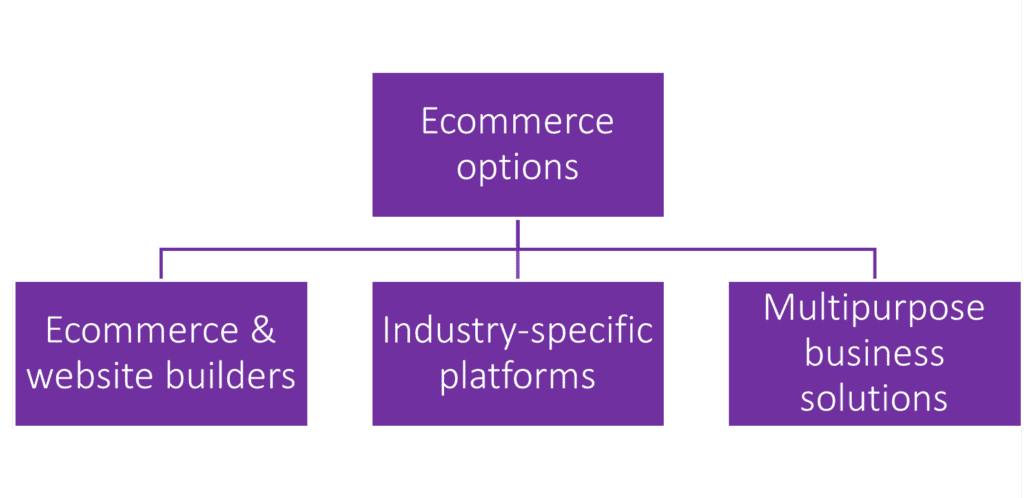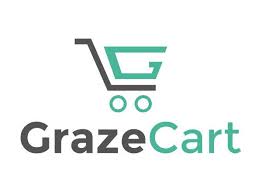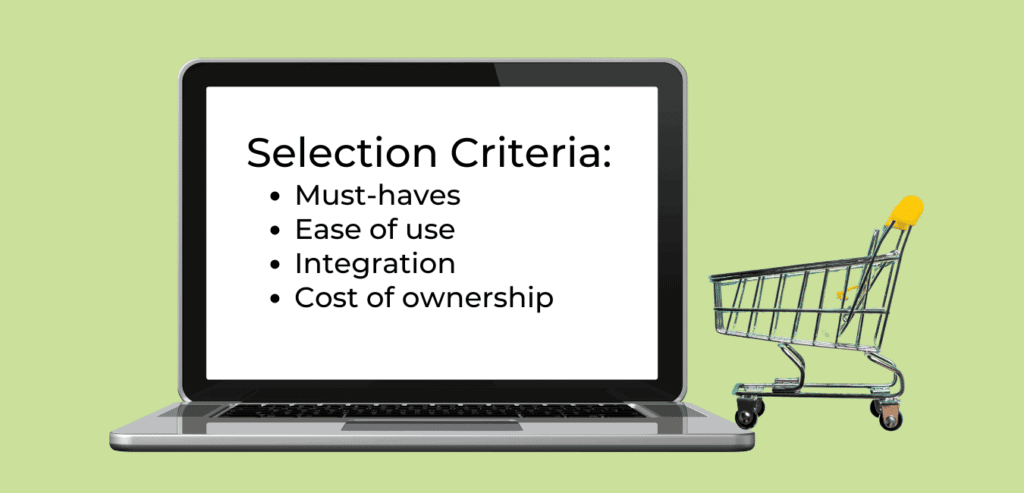This is Part Two of a three-part series titled, “Which Ecommerce Platform is Best for Your Small Business?” In Part One, we identified the “must-have” and “nice-to-have” features that Greenfield Highland Beef wanted for their online farm store.
The Best Ecommerce Platform for Your Small Business
When helping clients choose a software platform, Good Egg Marketing usually focuses on four criteria:
- Which platforms contain the “must-haves” features that will help you achieve your business goals? Of those products, which ones also offer the “nice-to-have” features? If you plan to scale up, which products will allow you to add the features you’ll need later?
- Ease of use. Which platforms will be easiest to set up and run?
- Which platforms will best integrate with your existing digital and paper systems?
- Total “cost of ownership.” What’s the total cost of setting up and maintaining the platform?
- How much will we need to spend each month or year to get the features we want?
- Do we need to budget for any other expenses, such as new equipment, additional software, plugins, domain names, and hosting services?
- Will the cost of the total system be offset by increased sales or cost savings in other areas?
Identifying the options for Greenfield Highland Beef
Hundreds of digital platforms offer some form of ecommerce services. Most fall into one of three categories, as pictured in the diagram below.
 Any of these platforms will enable you to sell online, but the features, ease of use, and costs vary greatly. Here’s an overview of what to expect in each category.
Any of these platforms will enable you to sell online, but the features, ease of use, and costs vary greatly. Here’s an overview of what to expect in each category.
Ecommerce and website building platforms
 The line between ecommerce and website building platforms has blurred. Ecommerce platforms like Shopify or BigCommerce focus on helping businesses maximize online sales, but most allow you to create a variety of web content. Shopify also offers a POS system so you can sell at retail as well as online.
The line between ecommerce and website building platforms has blurred. Ecommerce platforms like Shopify or BigCommerce focus on helping businesses maximize online sales, but most allow you to create a variety of web content. Shopify also offers a POS system so you can sell at retail as well as online.
Website building platforms like Squarespace, Wix, and GoDaddy make it easy to build a website for any purpose, including ecommerce. If you have an existing website, you can add ecommerce functions. These platforms also offer additional marketing capabilities.
If you’re primarily an online store, you’re probably best off with an ecommerce platform; if you’re only selling a few items online, you may prefer a website building platform. Many businesses like the features of both platforms, so they create an online store in an ecommerce program and link it to a site built in a website platform.
Industry-specific platforms
There are digital platforms for almost every industry, including small farms. In addition to ecommerce, most offer functions such as website building, email marketing services, graphic design, social media integration, and marketing support.* Good Egg Marketing evaluated three programs that best fit Greenfield Highland Beef’s criteria: Eat From Farms, Barn2Door, and GrazeCart. All three enable you to quickly set up an online store either as a complete website or a link to your existing site. All of them let you sell by the package or the pound.
 Eat From Farms has friendly technical support; a free product library with descriptions, photos, and ordering already set up; and handles CSAs, onsite pick-up, and home delivery, but it’s not integrated with QuickBooks or Mailchimp. It’s well-suited for farms that just want an online store.
Eat From Farms has friendly technical support; a free product library with descriptions, photos, and ordering already set up; and handles CSAs, onsite pick-up, and home delivery, but it’s not integrated with QuickBooks or Mailchimp. It’s well-suited for farms that just want an online store. Barn2Door offers email marketing, tutorials, and account management, so it’s a good choice for small farms who want help setting up an online marketing program. It’s integrated with Stripe (for credit card payments), QuickBooks, MailChimp, and a variety of route management apps, so you can manage your orders, inventory, payments, and deliveries.
Barn2Door offers email marketing, tutorials, and account management, so it’s a good choice for small farms who want help setting up an online marketing program. It’s integrated with Stripe (for credit card payments), QuickBooks, MailChimp, and a variety of route management apps, so you can manage your orders, inventory, payments, and deliveries. GrazeCart is a sophisticated online sales and fulfilment platform for farmers and others selling perishable foods; it’s a good program for larger farms looking to scale up. You can set up variable pricing and product lists, so both consumers and wholesale customers can order online. If you’re growing quickly and know what you need, GrazeCart has a lot of features to offer.
GrazeCart is a sophisticated online sales and fulfilment platform for farmers and others selling perishable foods; it’s a good program for larger farms looking to scale up. You can set up variable pricing and product lists, so both consumers and wholesale customers can order online. If you’re growing quickly and know what you need, GrazeCart has a lot of features to offer.
Multipurpose business solutions platforms
Software programs are increasingly becoming multipurpose platforms that enable you to accomplish many types of tasks. If you just want to sell online, you can add ecommerce capabilities from a wide range of programs, including email service providers, payment services, and even social media channels.
For example, Mailchimp lets you set up a free online store that integrates with their email services and other marketing tools. If you already pay for Constant Contact email services, you can set up an online store for no extra fee. And even Google lets you sell products free through their Merchant Center.
Facebook, Instagram, Pinterest, and other social media channels also let you sell products on your business pages. There’s no fee for this, but you do have to connect your page to a payment processing app like Stripe or PayPal. If you have an online store already, you can connect it to your Facebook Shop. If you’re serious about selling online, however, you’ll probably want to use a more robust platform to build your online shop.
 Square, the payment processing services platform, has become a popular website building and ecommerce platform. Square bought website building platform Weebly in 2018 and are slowly integrating Weebly’s website and ecommerce capabilities into the Square app.
Square, the payment processing services platform, has become a popular website building and ecommerce platform. Square bought website building platform Weebly in 2018 and are slowly integrating Weebly’s website and ecommerce capabilities into the Square app.
You can build a free website and online store in Square or pay a monthly fee for additional features. In addition, Square offers a variety of subscription marketing services (for a fee), such as email marketing and text marketing programs, coupon campaigns, and a customer loyalty program. And Square shines when it comes to integrating online and offline sales, inventory management, and linking to QuickBooks.
Which platform did Greenfield Highland Beef choose?
Greenfield Highland Beef could have created an attractive, functional online store using any of the ecommerce platforms discussed above. After an initial review, we narrowed the options to Barn2Door, Squarespace, and Square.
- Barn2Door had the most attractive features of the three farm-based programs Good Egg reviewed, but since Janet wasn’t planning to do any extensive marketing to new customers, it ultimately wasn’t a good match for her needs.
- Squarespace was a strong option since Greenfield Highland Beef is already using their website builder. But the Squarespace template the farm is using had limited customization options for the online store, so we would have wanted to migrate to a new template. Janet already had a recently developed website that she was very happy with, so Squarespace was out.
- Square was the winner. Janet wanted to start using Square’s mobile payment system for selling at markets. She liked the fact that Square’s offline and online inventory are integrated, so she could keep track of her stock in real time. She also looked forward to streamlining her booking by integrating QuickBooks Online with Square’s payment system.
Follow along as we set up the farm’s online store in Square. Read Part 3: Implementation.
* For a comprehensive overview of the farm-based platforms, see The Young Farmers Coalition publication, “Farmers Guide to Direct Sales Software.”




